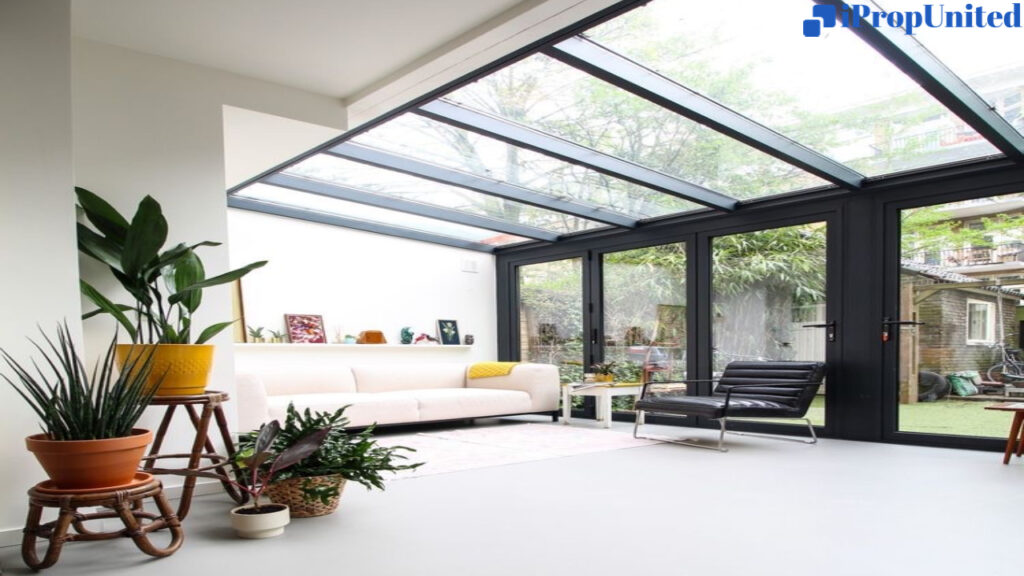If you are considering installing glass rooftops, consider the pros and cons carefully before deciding. Although it brings in a lot of natural light and lowers electricity costs significantly, a glass roof overheats interior spaces in hot weather and needs regular upkeep.
Glass is one of the most widely used and versatile materials that has taken the construction industry by storm. It comes in an endless variety of designs used to improve a home’s aesthetic appeal and efficiency. For example, the crystalline nature of glass greatly aids in creating an effective balance between indoor and outdoor spaces and guarantees proper ventilation regardless of the weather.

Since glass allows the most light to enter a room and illuminates every part of the house, glass windows and doors are preferred by most modern homeowners over more traditional materials like steel and wood. Because of these added benefits, glass rooftops are becoming increasingly popular in addition to glazed windows and doors. Still, many people are uncertain about glass’s suitability for the climate of India, so this article provides an overview of the benefits and drawbacks of glass rooftops for Indian homes as well as helpful advice on how to overcome any obstacles.
Advantages of glass rooftops
Energy Efficiency: In India, where summers are hot and winters are bitterly cold, laminated safety glass is ideal because it secures the home from outside intrusion and eliminates the need for additional expenses like air conditioners (ACs) or room heaters, which drastically lowers electricity bills. Glass is a highly energy-efficient material when compared to its traditional counterparts. However, it is important to use a glass sheet that has low emissivity and provides ultra-effective insulation against heat, noise, and cold.
Improved Lighting: A glass roof is one of the best natural ways to add light to your home’s interiors. Its translucent structure lets in an abundance of natural light, which is the best alternative to artificial lighting. Additionally, natural light is a great way to draw attention to the colors and design elements of your home.
Reduced Noise: After a long day at work, anyone could want a restful sleep, and a conservatory (glad) roof would help to meet that need. Conservatories are the best choice for residential apartments since they are less vulnerable to outside noise.
Enhances the house’s resale value: Although glass roofing is a little more expensive than its conventional counterparts, the effects it has on the property are unparalleled. There are numerous locations in the house where installing a glass rooftop would reduce electricity costs while simultaneously enhancing the aesthetic appeal of the building and raising its resale value. For example, adding a glazed roof to your living room or kitchen is a cost-efficient and effective way to let in more natural light and raise the value of your home.
Disadvantages of a glass rooftop
Maintenance: The aim of a glass roof can be completely undermined by dust accumulation, so cleaning should be done as often as every two weeks or every week. Additionally, because glass roofs are weaker than timber or brick-and-mortar roofs, they can invite intruders.
Leakages: Incorrect installation of glass sheets can lead to leaks in the building during rainy seasons or dust penetration in arid climates. Consequently, it is imperative to engage with a professional who can provide the best roof designs based on the available space and securely fasten the glass sheets to prevent issues later on. This is particularly crucial because India’s summers and monsoons are longer than those of other countries.
A glass roof is a great way to combine the best aspects of both worlds by connecting the inside and exterior spaces. But, to get the most out of your glass roof, you must do extensive research and choose the proper kind of glass.
Follow and Connect with us: Twitter, Facebook, Linkedin, Instagram








